
Modern typography is one of the most popular design approaches today. For designers, mastering this style is essential because it helps deliver messages with clarity, visual harmony, and a contemporary touch.
Yet, some may still find it a little unfamiliar. That’s why this article will guide you through the key characteristics of modern typography, highlight current font trends, and showcase five real examples from global brands.
Key takeaway:
According to Mothelsang and Myeong (2024), modern typography is a typographic trend that has evolved alongside technological advancements and shifting user expectations, often characterized by the dominance of sans-serif typefaces and the use of variable fonts.
This style emphasizes simplicity, clarity, and a contemporary aesthetic that is highly adaptable across different platforms. By prioritizing readability and visual balance, this style not only strengthens brand identity but also enhances user experience.
Also Read: Expressive Typography: Examples and Tips to Create It
Modern typography has several defining traits that distinguish it from traditional approaches. Below is a breakdown of its main characteristics.
This style is dominated by clean and versatile sans-serif fonts. Some of the most widely used include:
Variable fonts are a major trend in this style because they allow multiple styles like weight, width, and slant within a single file for flexible and high-performance design. Popular variable fonts such as Google’s Roboto Flex and Adobe’s Acumin Pro Variable.
Modern serif typography fonts are a key trend in contemporary typography. It is because they update classic serif structures with cleaner lines, simplified details, and improved readability for digital and print use. Popular modernized serif fonts such as Bodoni and Didot.
Geometric sans-serif fonts are a defining trend in modern typography because they use shapes like circles and straight lines to create clean, minimalist letterforms that feel contemporary and versatile. Popular geometric sans-serif fonts such as Futura and Gotham.
Neutral and Swiss-inspired sans-serif fonts are a staple of this style. It is because they prioritize clarity, restraint, and functionality with clean, unobtrusive letterforms. The popular font examples such as Univers and Helvetica.
High-contrast typography is a prominent trend in modern design because it uses dramatic differences in stroke weight to create visual impact and elegance while maintaining readability. A popular example of this style is the Playfair Display font, where the high contrast comes from the striking difference between thick and thin strokes.
Also Read: Typography Art: Definition, Concept, Benefit, and Examples
This style has become a powerful tool for shaping brand identity and visual impact in today’s design landscape. Here are some examples of this style in global brands.

Uber reinforced its modern identity by using Uber Move, a custom geometric sans-serif typeface. Its features are clean lines and minimal forms that convey efficiency, clarity, and modernity. Moreover, the typeface is optimized for readability across devices and supports multiple languages.

Apple uses its custom sans-serif typeface, which is San Francisco, to bring a clean, minimal, and product-focused feel to all of its devices. The font is designed to stay clear and readable at any size, quietly supporting the brand’s modern aesthetic without drawing attention to itself.
It works because it feels as sleek as Apple’s products, stays legible on every screen, and avoids any unnecessary frills that might get in the way.

Airbnb uses the sans-serif typeface Airbnb Cereal across its website, app, and marketing materials to create a clean and modern visual experience. Airbnb Cereal provides clarity and readability for all text, while its rounded and geometric letterforms add a friendly and approachable feel that creates an inviting brand identity.

The modern typography logo of Hermès uses sharp serifs and tightly spaced lettering to convey precision, heritage, and exclusivity. Its substantial yet understated weight reflects the quiet confidence of a luxury brand that doesn’t need to shout to be seen.

Audemars Piguet’s serif typography reflects the same precision as its watchmaking, with intentional weight balance, consistent geometry, and meticulously shaped curves that communicate craftsmanship and heritage. The tightly spaced letterforms add a sense of exclusivity, creating a visual identity that feels as intentionally crafted as its high-end timepieces.
Also Read: 15 Best Professional Fonts for Your Web Design
Modern typography emphasizes clean structure, balanced proportions, and refined visual appeal. Here are five curated modern fonts from Lettermine Studio to enhance your design.
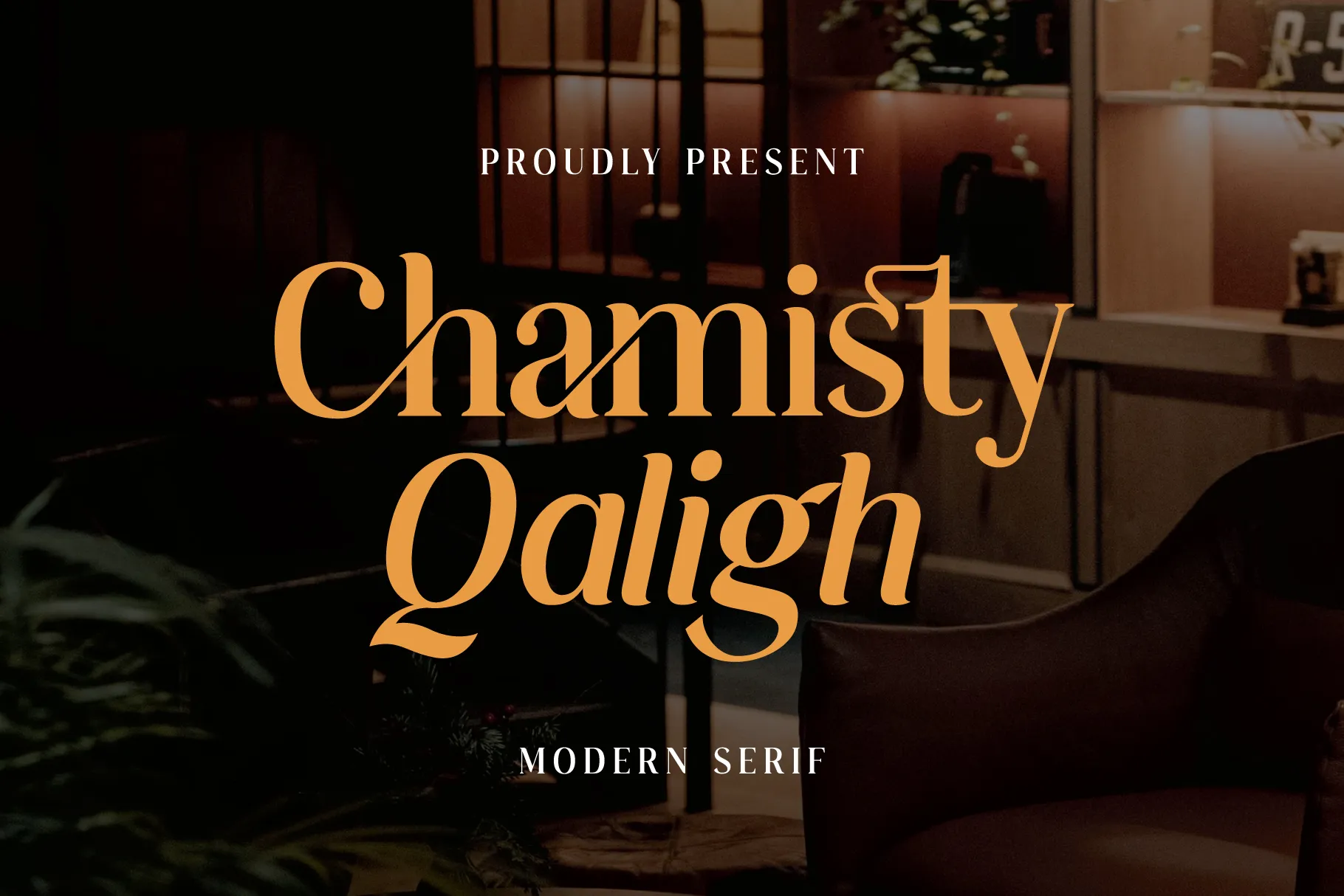
2. Rawclue
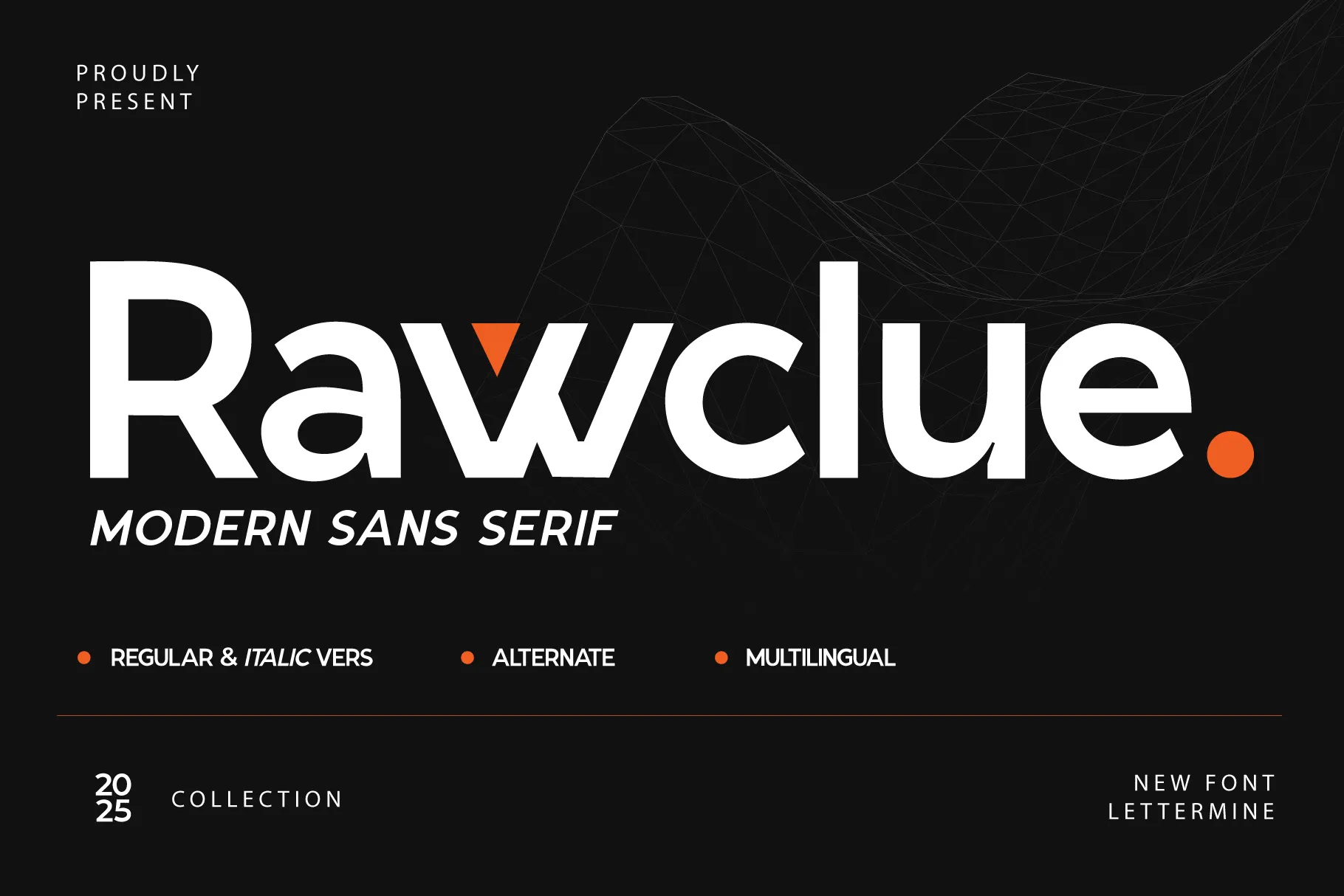
3. Ridelans
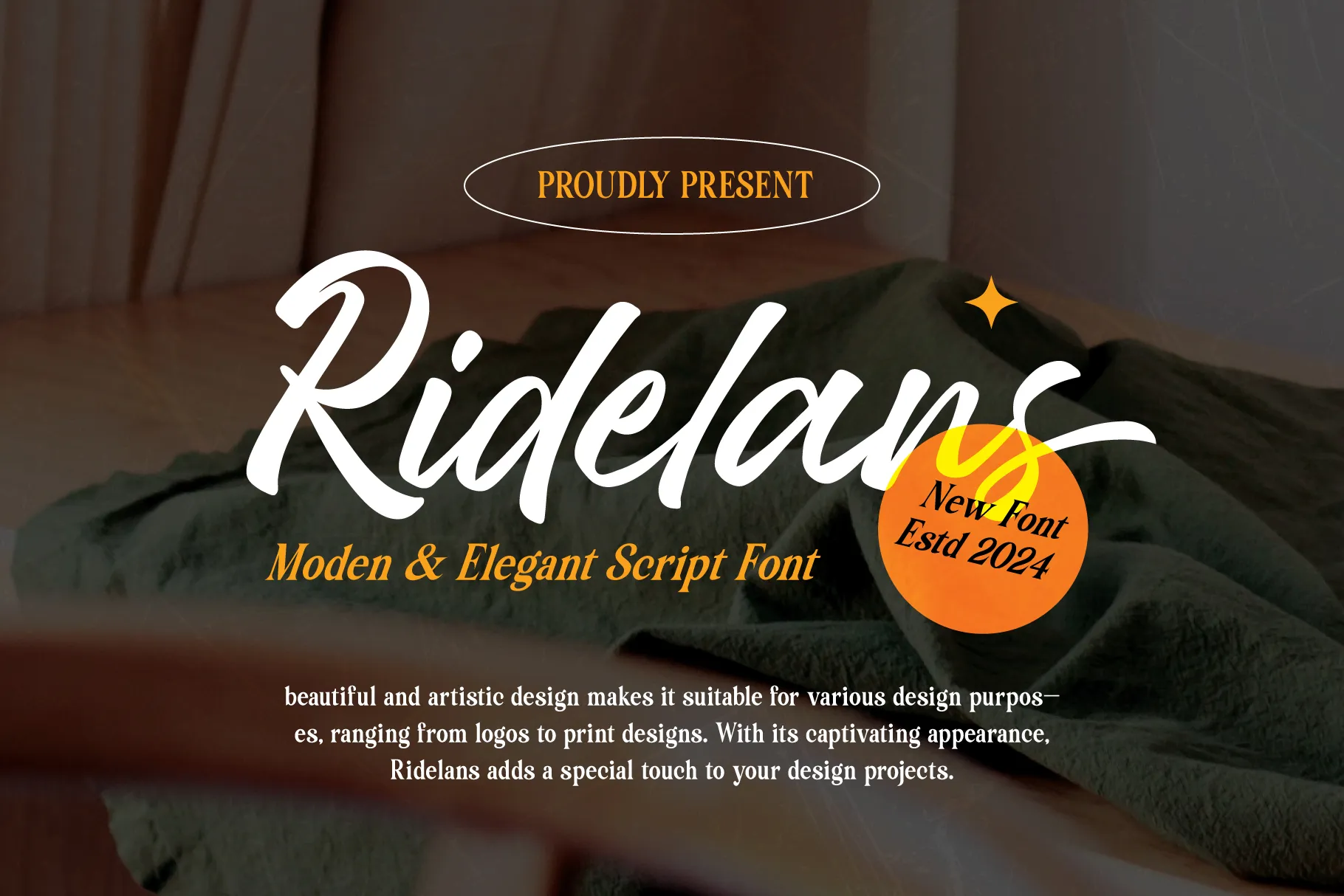
4. Caligane
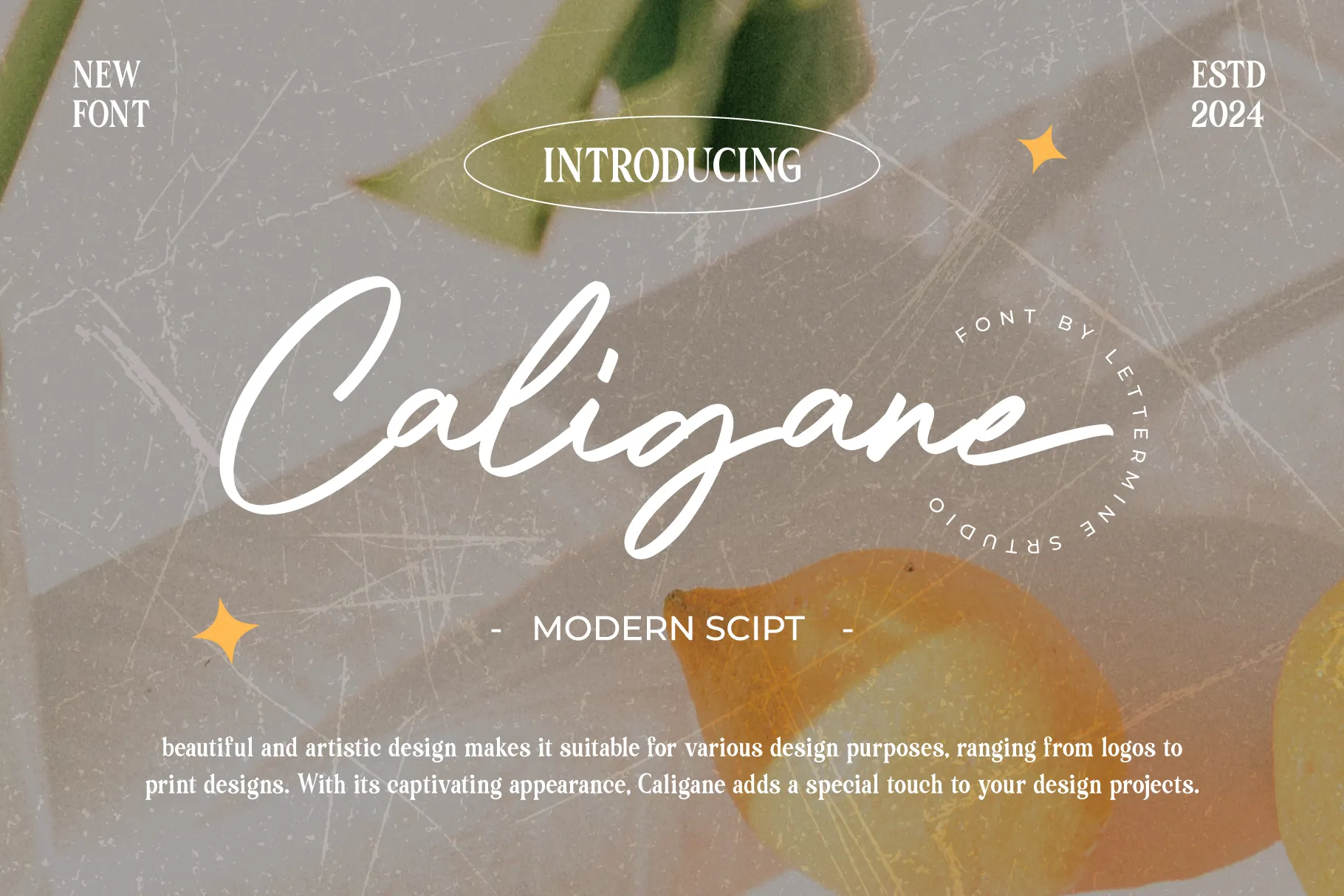
5. EZ Braney
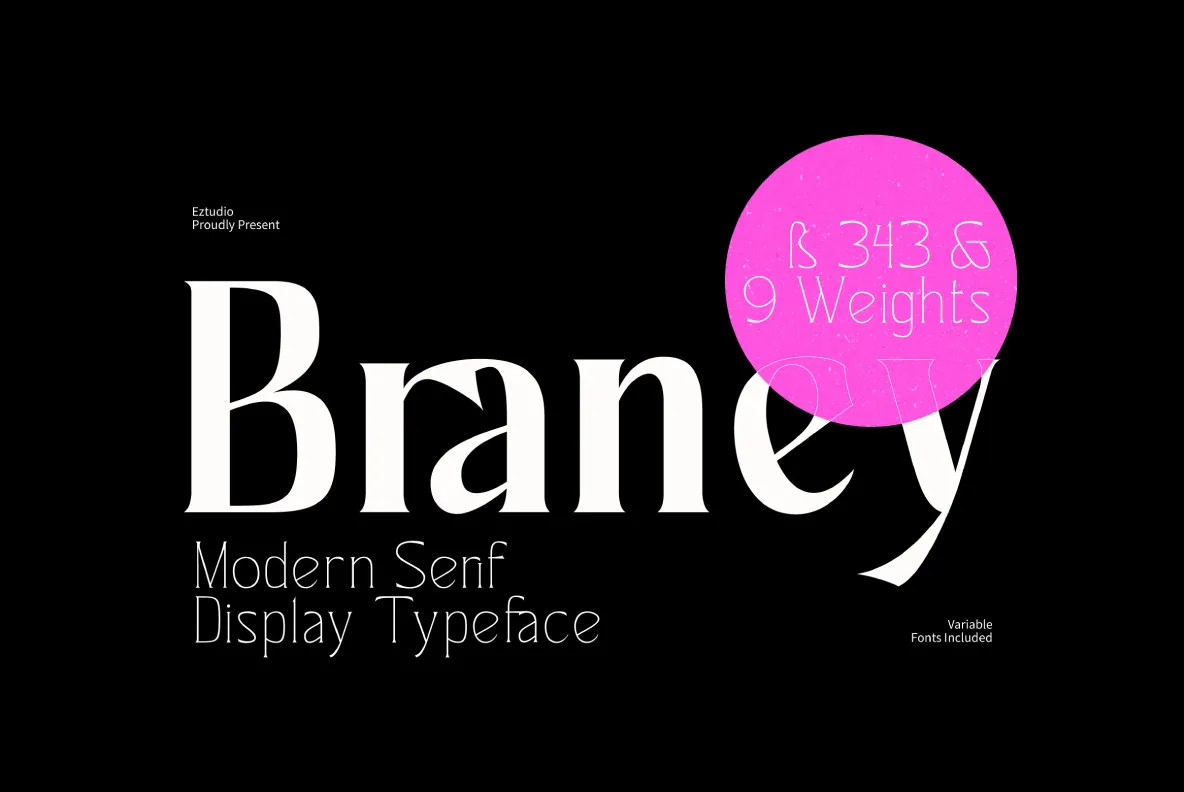
Also Read: 10 Best Fonts for Books You’ll Ever Need & How to Choose
Global brands like Uber, Apple, and Hermès show how typography functions as a strategic branding tool rather than decoration. Through custom typefaces and consistent visual systems, typography communicates identity and reflects the values of a brand in the digital age.
If you’re looking for the same modern aesthetic font for your projects, you can use the five modern fonts above. They align perfectly with modern type principles and are ideal for branding, editorial design, or digital products.
Moreover, the price of these fonts starts at just $18 for a basic license, which already covers unlimited personal projects and unlimited non-commercial social media use. In addition, Lettermine Studio provides real-time support chat, ensuring you get quick assistance whenever you encounter technical issues or need guidance in your design process. For more details, simply visit the Lettermine website!